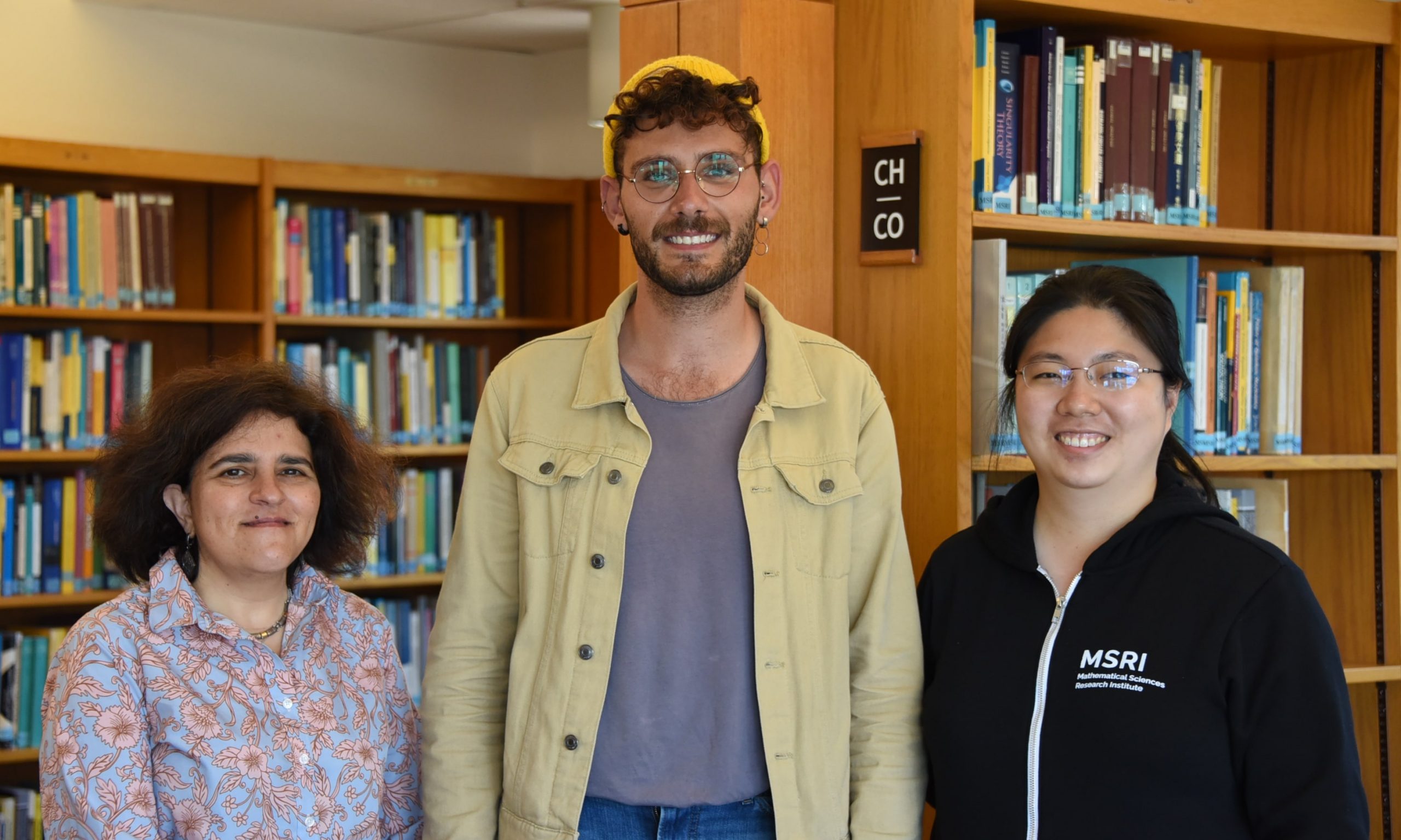Month: April 2022
Gordina, Carfagnini, and Luo Spend Spring 2022 at MSRI
 Three department members are participating in the 2022 Mathematical Sciences Research Institute (MSRI) program Analysis and Geometry of the Random Spaces.
Three department members are participating in the 2022 Mathematical Sciences Research Institute (MSRI) program Analysis and Geometry of the Random Spaces.
Professor Masha Gordina is a Research Professor in the program. These positions are reserved for distinguished researchers who can make key contributions to their programs including the mentoring of postdoctoral fellows.
Marco Carfagnini is the Salgo Noren Program Associate in the program. His research is in stochastic analysis and its interplay with differential geometry and functional analysis. In particular, he studies limit laws for degenerate stochastic processes, especially processes on Lie groups, and analysis and geometry of path spaces. In Fall of 2022 Marco will join the University of California at San Diego as a Stefan E. Warschawski Visiting Assistant Professor.
Liangbing Luo is the Lauter Program Associate in the program. Liangbing’s research interests lies primarily in analysis, probability and geometry. She is particularly interested in functional inequalities, such as logarithmic Sobolev inequalities and Poincaré inequalities. More precisely, Liangbing’s research include logarithmic Sobolev inequalities with respect to a hypoelliptic heat kernel measure on finite-dimensional and infinite-dimensional Heisenberg groups and how the constants depend on the geometry of their underlying spaces. In Fall of 2022 Liangbing will join Lehigh University as a C.C. Hsiung visiting assistant professor.
This program is devoted to the investigation of universal analytic and geometric objects that arise from natural probabilistic constructions, often motivated by models in mathematical physics. Prominent examples for recent developments are the Schramm-Loewner evolution, the continuum random tree, Bernoulli percolation on the integers, random surfaces produced by Liouville Quantum Gravity, and Jordan curves and dendrites obtained from random conformal weldings and laminations. The lack of regularity of these random structures often results in a failure of classical methods of analysis.